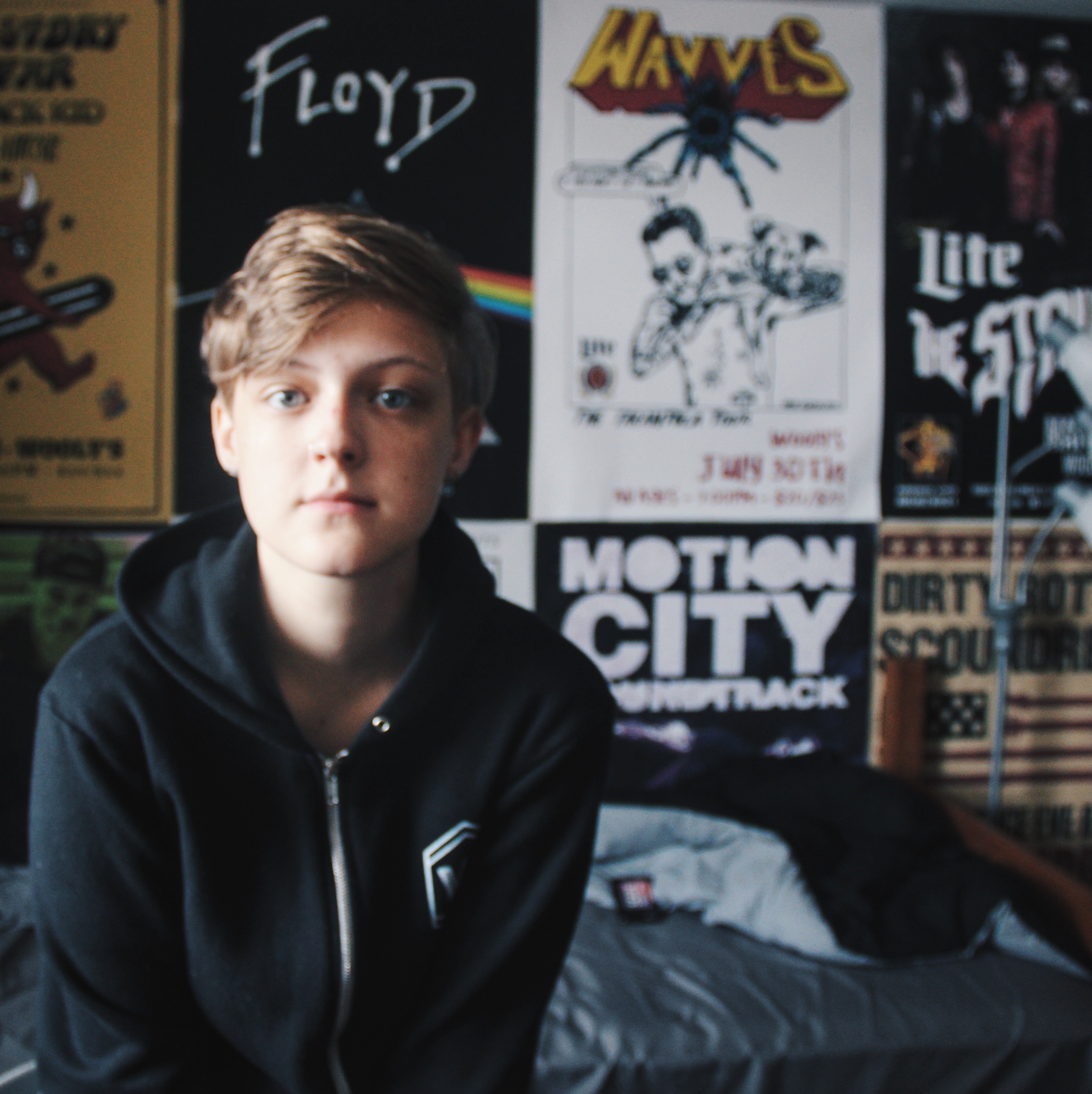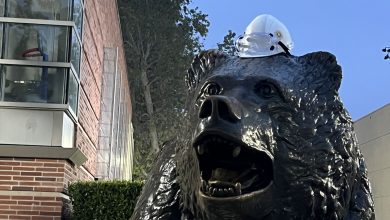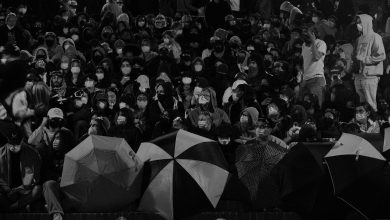Pink Noise: Awareness for Women in Music

Photo courtesy of Savannah Lane.
It’s no secret that women working in the music industry, like many other industries, lack representation and have their work devalued. This does not only include women artists and performers, but also includes tour managers, photographers, producers, writers and many other professionals found within the music industry.
The underlying sexism within the music industry often prevents women working in it from gaining much deserved respect and positive attention. Therefore, Savannah Lane, a first-year at the University of Iowa studying Gender/Women’s Studies and Performing Arts Entrepreneurship, has created a space to bring this much needed attention to women in the music industry through her online publication, Pink Noise.
Pink Noise declares in their mission statement that it is “dedicated to bringing awareness to females of all races, sexualities, and backgrounds in the music industry.” It is a place of inspiration and solidarity for women working and aspiring to work in the music industry.
I interviewed the creator of Pink Noise, Savannah Lane, to learn more about her personal experience with the industry as well as her mission and goals for the publication.
N: To start off, how do you define feminism?
SL: Oh that’s hard. I guess I’ll define it as just the constant need for advancement of women to eventually reach equality. I think the important thing is that a lot of people don’t realize that to get to equality, women need to be advanced. A lot of people think that it could even out in other ways. That’s why I do Pink Noise. I think it’s important to give women special recognition so that they have a space where the focus is on women because they are systematically oppressed. It’s important to have special spaces for women so that they begin to feel more accepted in a society that tends to favor men.
N: How do you practice your own feminism?
SL: Definitely through Pink Noise, constantly trying to find new female musicians to listen to and to start thinking about writing something about them. Also, I’m majoring in Gender and Women’s studies, so everyday I go to class and learn about the history of feminism and how it is working in today’s society. I am also constantly reminding my fellow ladies that women could do anything, just through the little things, you know?
N: Have you been involved in the music industry yourself and what has been your personal experience within the music industry as a woman?
SL: My senior year in high school, I did an internship program at a concert venue in De Moines. When I first started working there, I knew I wanted to work in the music industry, but at that time I wasn’t really interested in how feminism worked in the music industry. But I started working there with one of my good friends, and we were the only two women working there and I started noticing little ways that we were being treated differently. That’s what really got me interested in gender equality in the music industry.
N: Could you please elaborate on the ways you felt you were being treated differently?
SL: One of the big things that really bothered me was that during load-in and load-out, when bands would bring their equipment in, I would always be asking, “hey, do you need help with anything?” Most of the time, I wouldn’t be doing anything, I would have a lot of my work for the day done so I would be asking if anybody needed help with load-in. But it was just a big stigma because a) I was a girl, and b) I was also four to ten years younger than everybody else that worked there, so people assumed I wasn’t strong enough, I wouldn’t know what I was doing, and I didn’t know how to handle the equipment. I felt like they weren’t letting me do something that I knew I could have done because I was a young woman.
N: So would you say that there some form of ageism as well?
SL: Yeah, I think that was part of it. I don’t think that a lot of the guys that worked there were blatantly sexist. A lot of the people who worked there became really good friends with me, but I think they thought of me as a little sister almost. That’s sexist to me.
N: Do you want to work in the music industry after you graduate?
SL: Yeah, for sure. I’m not sure what right after college is going to look like for me. I’d love to work in a label, maybe doing marketing or something to start out. It would be really cool to be a tour manager. But my long term goal is to start my own label and have it be female artists, which is what the idea for Pink Noise began as. But I’m not in the position financially or with recognition to start a label at this point in time, so I started Pink Noise as more of a publication to raise awareness.
N: You briefly stated that your internship in high school is part of the reason Pink Noise began, but overall why did you start Pink Noise?
SL: I think that the internship was a big part of it because me and the other girl that worked there with me, I thought we were both really good at our jobs, but I feel that we didn’t get the recognition we deserved. I also started noticing the lack of women we had coming to the venue I worked at. Part of my job was covering the shows, going to the concerts, and posting on social media about the show, and I noticed that every night I was just seeing, like, four or five men on stage.
N: So when did you start Pink Noise, how did it start, who did you start it with, how big has it become since it started and what are your plans for the future?
SL: It’s probably been about a year, I think, since I started it. There isn’t a lot of content on there because I’ve been so busy with school, so it’s been more of a side thing, but I definitely want to continue growing it. I built the website myself and the girl I worked with, Lindey Carlson, really helped me come up with the first ideas behind it. There are articles on there written by a couple of girls that I went to school with. In terms of current popularity, I wish it had more readership because I obviously think it’s an important topic. I am always tweeting the links on my own account as well as the Pink Noise account. All my friends help me spread the word. I think it’s people who know me personally reading it right now, I don’t think it’s reached a broader audience yet, but I definitely think that in the future it has a potential to, especially if I get to a point where I have the time to start putting in effort toward marketing.
N: Especially since you are busy with school, do you think that being at this age has made it difficult getting things done with Pink Noise?
SL: I am a full-time student and it is my first semester in college, so I’m still adjusting to the differences between high school and college. Yeah, it’s been hard in that way because, you know, every college student is very busy. I also worry that down the road, if I try to take on bigger projects, people may not take me seriously because of my age, maybe even more so than my gender, especially because I want to reach out and work with bigger companies that are also owned and operated by women. In that case I don’t think my gender would be an issue because we find common ground on that issue, but I do think that older and more experienced women may not take me seriously because I am so young.
N: Do you see yourself only working with people locally in Iowa or do you see yourself, as your publication gets bigger, expanding your network to include contributors from other parts of the country or even the world?
SL: I’d love to work with people all over the country and the world, I think that would be awesome. I think popular songs are popular everywhere, but there are also local scenes that you won’t really know of if you don’t live somewhere. So I can talk about the local scene here [in Iowa], but my local scene would be very different from somebody’s local scene in New York or Chicago or LA. So I would definitely love to work with people all over, and it would be awesome to get some different geographical viewpoints.
N: To wrap up, what would you like the readers of FEM to know about your publication?
SL: We need you to help us. I am definitely looking for more women to contribute in any way. I have a lot of ideas for cool projects but I need people to help me. And also I need you to read it, retweet it, send people the articles; just get the word out. I think it’s a really important issue to get the word out.
You can find the Pink Noise website here, and follow them on Twitter. If you are interested in working with Pink Noise, you can contact them via email at [email protected].




